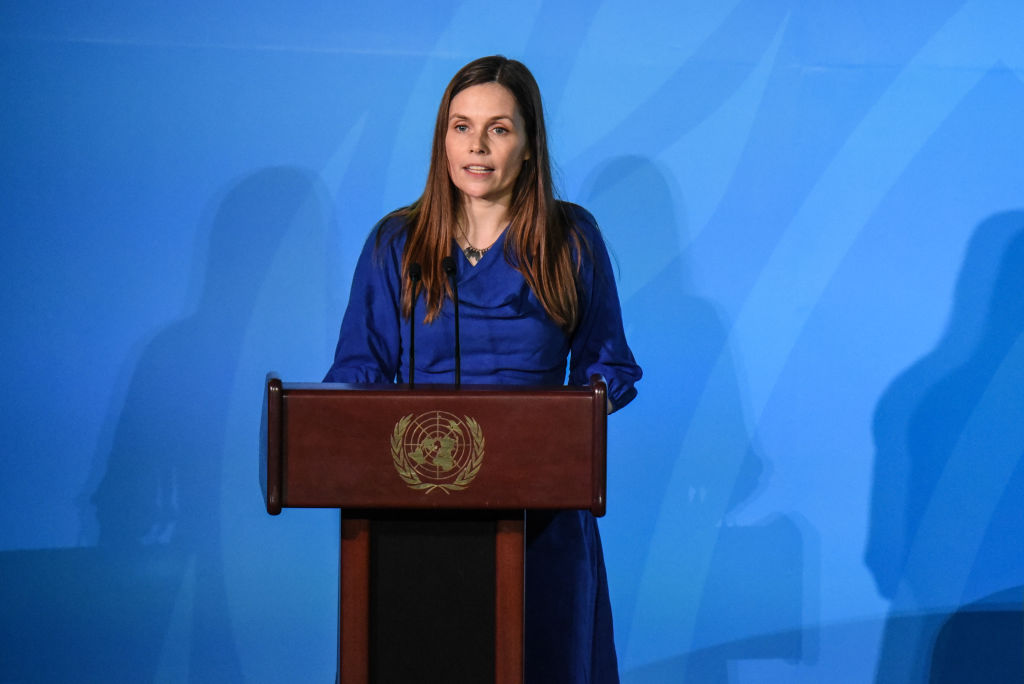Tens of thousands of Icelandic women, including Prime Minister Katrín Jakobsdóttir, are participating in the first full-day women’s strike in nearly 50 years on Tuesday.
The kvennafrí, or “women’s day off,” includes both paid and unpaid work, and protests the gender pay gap and gender-based violence in the Nordic island nation.
[time-brightcove not-tgx=”true”]
“As you know, we have not yet reached our goals of full gender equality and we are still tackling the gender-based wage gap, which is unacceptable in 2023,” Jakobsdóttir told a local news outlet ahead of the protest. “I will not work this day, as I expect all the women [in cabinet] will do as well.”
The strike is a nod to Oct. 24, 1975, when 90% of women in Iceland took a day off from work and domestic duties. The national strike ultimately led to historic changes that advanced gender parity, including prompting parliament to pass an equal pay law the following year. In 1980, Iceland also became the first country in the world to elect a female as head of state.
Those protesting say that Iceland, despite ranking first in the world for gender equality by the World Economic Forum for the last 14 years, has consistently undervalued and underpaid women in traditionally female-dominated jobs like cleaning, childcare, and caregiving. The WEF puts Iceland’s median wage gap between women and men at 21% in its latest report, though the OECD and others say the gap is closer to 10%—still wider than in other European countries like Belgium and Italy.
“Systemic wage discrimination still affects women, and gender-based violence is a pandemic that must be eradicated,” organizers said ahead of the strike.
The planned strike has led to the closure of streets and schools, as well as the postponement of the day’s parliamentary session.
While it is hard to gauge the exact number of people expected to participate, experts say some 90% of women are likely to have stopped working for the day. BSRB, the country’s biggest federation of public worker unions, is also taking part in the strike, along with 31 associations.
“Workers from all major industries are taking part: healthcare workers, teachers, service workers, finance workers, care workers, energy workers, etc,” Sonja Yr Porbergssdottir, chair of the Icelandic Federation for Public Workers, told The Independent.
The strike will likely affect sectors like healthcare and education most, where women form the majority of the workforce. Ninety-four percent of all kindergarten teachers are women, according to the Icelandic Teachers’ Union, while 80% of workers in the National University Hospital of Iceland, the country’s largest hospital, are women.

